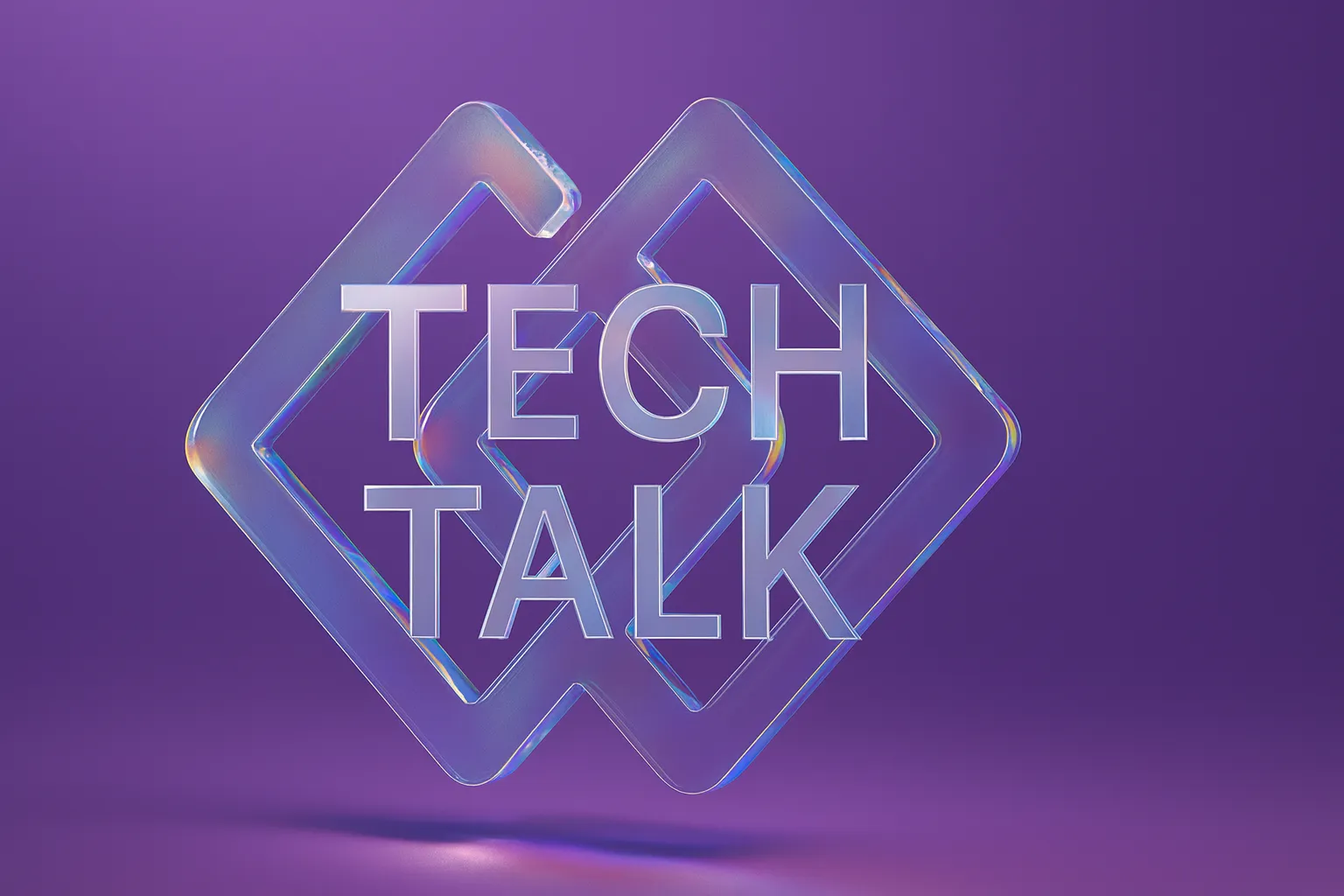Artificial intelligence is transforming sales strategies, and the results speak for themselves. LinkedIn’s use of generative AI for account prioritization increased renewal bookings by 8.08%, proving that AI-powered automation can drive real revenue growth. By taking over time-consuming tasks like data entry and report generation, AI frees up sales teams to focus on what they do best—building relationships and closing deals.
According to Harvard Business Review, leveraging generative AI in sales not only improves efficiency but also enhances customer interactions, leading to higher engagement and better conversions. Since sales is a multi-layered function, leaders across tech, data, and sales teams—including CTOs, CIOs, Heads of Data Science, and sales executives—must learn how to integrate AI effectively.
This guide breaks down best practices for using generative AI in sales, showing you how to implement AI-powered strategies that drive revenue and improve customer relationships. Let’s dive in.
Understanding Generative AI in Sales
Generative AI is like a creative engine capable of producing a wide array of content—from text and images to music and video.
But how does it work its magic?
To gain a deeper understanding of generative AI, let's explore the key technologies that power it:
- Generative Adversarial Networks (GANs)
- Introduced by Ian Goodfellow in 2014, GANs involve two neural networks—the generator and the discriminator—that play an adversarial game. The generator tries to create data that mimics real-world input while the discriminator evaluates whether this data is accurate or generated.
This back-and-forth refines the generator's output, resulting in remarkably realistic content. It's like an artist and a critic pushing each other to new heights of excellence.
- Variational Autoencoders (VAEs)
- VAEs take a different approach. They learn the underlying structure of data by encoding it into a latent space—a kind of compressed essence of the input. By sampling from this space, VAEs can generate new, coherent variations.
This makes them particularly suited for applications that require creativity and variation.
Generative AI's Impact on Sales
So, what does all this mean for boosting your sales? Beyond generating content, generative AI excels in recommendation systems. It analyzes user data to offer tailored suggestions, enhancing user experiences and fostering deeper engagement.
For sales professionals, this translates to:
- More effective strategies
- Personalized outreach
- Improved decision-making
Generative AI boosts sales by automating repetitive tasks, analyzing data, simulating customer interactions, uncovering insights, and creating targeted content.
This personalizes the sales experience at scale and increases customer engagement. However, while the benefits are significant, organizations may face adoption challenges when integrating these technologies into their sales processes.
Applications of Generative AI in Boosting Sales
Various generative AI applications, such as sales content creation, CRM automation, and pipeline enhancement, stand out as key areas where AI can boost sales performance. Generative AI can enhance sales efforts by enabling sales teams to analyze customer data effectively.
1. Sales Content Creation and Recommendation
Have you ever wished for a tool to craft personalized pitches and marketing materials for each prospect? Generative AI makes this a reality.
Platforms like Salesforce’s Einstein GPT analyze purchase histories and browsing behaviors to create tailored follow-up emails and proposals. By tapping into customer preferences, these AI-generated communications resonate more deeply, boosting engagement and conversion rates.
Generative AI can also interpret customer emotions based on language patterns, enabling sharper interactions and building stronger relationships. Master of Code Global’s BloomsyBox chatbot is a prime example—it offers personalized experiences that make customers feel truly understood.
2. CRM and Workflow Automation
Generative AI streamlines Customer Relationship Management (CRM) by automating functions like lead scoring and opportunity tracking, thus improving sales efficiency.
With AI-driven platforms, sales professionals can focus on strategy and client engagement rather than getting bogged down in details. In fact, HubSpot found that automating routine tasks can save a typical sales rep over two hours each day.
CRM systems integrated with generative AI—leveraging AI in CRM—such as Salesforce’s Einstein GPT or HubSpot’s ChatSpot, consolidate data seamlessly and provide instant insights. This enhances efficiency and empowers sales teams to make smarter daily decisions.
Enhancing Your Sales Pipeline with Sales Strategy
Generative AI can significantly enhance your sales pipeline by optimizing key touchpoints that drive efficiency and improve customer engagement.
By analyzing historical data and customer behaviors, AI can prioritize leads, allowing your sales team to focus on the most promising opportunities. It automates routine tasks like data entry, meeting scheduling, and follow-up emails, saving valuable time and reducing the chance of human error. This automation frees your team to focus on more strategic activities, like relationship-building and closing deals.
AI also personalizes outreach, generating tailored emails and proposals that resonate with individual prospects based on their needs, interests, and past interactions. By predicting future trends and identifying potential obstacles, AI helps sales teams stay ahead, providing actionable insights that improve decision-making.
Implementing Generative AI in Your Sales Workflow
Embracing generative AI can revolutionize your sales processes, but how do you integrate it effectively?
Here's a practical roadmap to guide you:
1. Assess Current Systems and Define Objectives
Start by evaluating your existing sales workflows, CRM setups, and operational tools. Identify pain points and areas where generative AI could enhance efficiency or provide new insights. Ask yourself:
- Are there repetitive tasks consuming valuable time?
- Do you need a deeper analysis of customer data?
Clearly defining your objectives—improving lead generation speed or enhancing customer interactions—sets the stage for successful integration into a data-driven culture with AI.
2. Choose the Right AI Tools
Select AI solutions that align with your specific needs and existing technology stack. Consider:
- Compatibility: Ensure the tool integrates with your current systems.
- Scalability: Can it grow with your business?
- Ease of Use: Is the interface user-friendly?
- Cost vs. ROI: Does the investment justify the potential return?
Platforms like Salesforce’s Einstein GPT or HubSpot’s ChatSpot are designed to enhance CRM functionality with AI capabilities.
3. Integrate with Existing Systems
Work closely with your IT team and AI vendors to embed new tools into your workflows. Ensure data formats are consistent and utilize APIs to harmonize platform inputs and outputs. Proper integration is crucial for accuracy and streamlined processes.
4. Train Your Sales Team
Introducing new technology can be daunting. Invest time in training to ensure your sales professionals feel confident using AI tools. Provide hands-on demonstrations that show how generative AI enhances daily tasks, from automating follow-ups to offering real-time insights during customer interactions. Workshops and tutorials can bridge knowledge gaps and boost productivity.
5. Address Resistance and Foster Continuous Improvement
It's natural for team members to feel apprehensive about AI. Address concerns by emphasizing how AI complements human expertise rather than replacing it. Share success stories and real-world benefits, like faster deal closures and more engaging client conversations. Encourage a culture of continuous learning and adaptation.
6. Monitor and Optimize
After implementation, track the impact of AI tools on your key performance metrics. Collect feedback, identify issues, and be prepared to make adjustments. Regular reviews will update you with new features and refine your approach as AI solutions evolve. Regular reviews also help you avoid common mistakes in AI implementation, ensuring the long-term success of your AI integration.
Choosing the Right Generative AI Tools to Drive Sales
Selecting the best generative AI tools starts with understanding your sales goals and identifying where AI can make the biggest impact.
To ensure you’re making the right investment, consider these key factors:
- Identify Your Needs: Start by evaluating the challenges in your sales process. Do you need help with lead generation, personalized outreach, or automating follow-ups? Identifying pain points will help you find tools for your specific sales objectives.
- Integration with Existing Systems: Look for AI tools that integrate seamlessly with your current sales platforms, such as CRM systems, email marketing software, or lead management tools. This ensures smooth workflow and prevents disruptions to your existing processes.
- Ease of Use: Choose user-friendly tools that don’t require heavy technical expertise to implement. The simpler the tool, the quicker your sales team can adopt and benefit from it.
- Personalization Capabilities: Focus on AI tools that can generate personalized content at scale. Whether it’s crafting emails, proposals, or product recommendations, the ability to customize outreach to individual prospects is crucial for boosting sales.
- Data-Driven Insights: Select tools that provide actionable insights from data analysis. Tools with AI-powered analytics help you understand customer behavior, optimize lead scoring, and predict sales trends, all of which can improve decision-making.
- Automation Features: The tool should automate time-consuming tasks like data entry, follow-ups, and scheduling. This allows your sales team to spend more time on strategic activities, such as building relationships and closing deals.
- Scalability: Ensure the tool can scale with your business as it grows. Whether your sales team is small or large, the AI tool should be flexible enough to adapt to your needs and accommodate growth without a major overhaul.
- Support and Training: Check if the tool offers customer support and training resources. Access to a knowledge base, onboarding sessions, and technical assistance can help your team get the most out of the tool.
- Trial Period: Many AI tools offer free trials or demos. Take advantage of these to test the tool’s capabilities, ease of use, and impact on your sales process before making a long-term commitment.
By carefully evaluating these factors, you can select the right generative AI tool to streamline your sales process, improve efficiency, and drive higher revenue.
Future Trends in Generative AI for Sales Growth
The journey of generative AI in sales is just beginning, and the road ahead promises even more transformative changes. AI automates tasks like writing emails, drafting proposals, and updating CRM records, allowing sales teams to focus on strategic engagement.
Generative AI is poised to handle more nuanced tasks in real-time. As AI models become more sophisticated, understanding AI product development strategies becomes essential for businesses that leverage these technologies effectively. They will analyze customer behaviors at scale, suggesting immediate adjustments to sales tactics and content. This level of responsiveness can significantly enhance customer experiences and drive sales performance.
Early adopters of these advanced capabilities stand to gain a competitive edge. Integrating AI deeply into their operations allows businesses to remain agile and responsive in rapidly shifting markets.
Embracing the Future of Sales with AI
Embracing generative AI in sales isn’t just about adopting new technology; it’s about transforming how we connect with customers and drive success. As we navigate this evolving landscape, understanding how to use generative AI to boost your sales is essential to stay ahead of the curve.
At Tribe AI, we understand the complexities and opportunities of integrating AI into your sales processes. Our expertise lies in guiding organizations through this transformation, tailoring solutions that align with your unique goals and challenges. If you’re ready to take the next step toward a more efficient and personalized sales strategy, we’re here to help you make that journey seamless and rewarding.











.webp)

